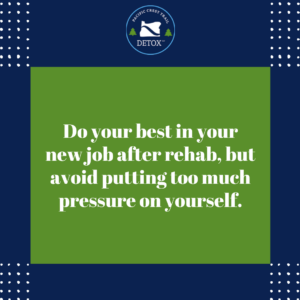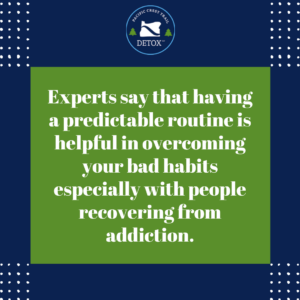Returning to work after an addiction treatment is considered a milestone. This shows how strong and determined you are to continue self-development and recovery. Doing what you are passionate about is one of the best ways to regain self-confidence and spend time in a productive manner. Finding a job after a rehab is a commendable action because it proves your resilience and dedication towards a healthier and brighter future.
However, coming back to the workforce can put you in situations that might challenge your recovery and professional demands. The most common issues you could encounter are stigma, triggers, adjustment period on the workplace culture, time management, and support network. The path to recovery involves a significant transformation and does not happen overnight.
The next steps after undergoing rehabilitation should help you regain your confidence in the workforce. In this article, we will provide insights on practical ways to return to a career after overcoming drug or alcohol addiction. By obtaining useful information like this, facing recovery challenges will be more manageable and consistent.

Developing a Sustainable Work Routine
Establish a routine that supports your addiction recovery. Continue with the healthy habits you have developed during the treatment. You may start by setting realistic goals and then, make a schedule that is aligned with these.
A work routine will allow you to have enough rest, a time for productivity, a balanced social life, and regular attendance to recovery-related appointments. Through this, your body can help adapt to your new lifestyle.
Ease Into Work
Do your best in your new job after rehab, but avoid putting too much pressure on yourself. Before addiction, you might have been a highly skilled professional, so returning to the workforce might drive you to take on more tasks than you can truly handle. Always remember that you went through a tough time. Try to be patient.
Setting realistic goals and expectations is crucial for long-term recovery. We recommend starting with a part-time schedule if possible, gradually increasing hours as your confidence and stamina rebuild.
Structured Schedule
Create daily and weekly schedules consisting of your work activities, exercise, hobbies, and recovery-related consultations. Experts say that having a predictable routine is helpful in overcoming your bad habits especially with people recovering from addiction. The benefits of following a certain line-up of activities also include better stress management and avoidance of overwhelming emotions.
Rebuilding Professional Networks
Another way of rebuilding your career after rehabilitation is to establish a strong professional network. You may start by attending industry-related events, joining online groups of the same interests, and utilizing social media channels like Facebook and LinkedIn to get to network.
Regain the trust of your professional network by being transparent with your recovery status, entering an aftercare program, showing up with your support group sessions, and performing well at work.
Seek Mentors
Identify people as well as mentors in the workplace that could show support and guidance with your addiction recovery. When you are being understood, you’d feel safer and alive going to the office. This might result in your gradual improvement.
Managing Stress and Expectations
Here are some practical ways to reduce stress:
- Get enough sleep. Having plenty of rest is crucial for the well-being of both the physical and mental aspects of a person. Sleep rejuvenates our body by repairing and relaxing it, potentially reversing the effects of stress.
- Do some breathing exercises. Using your breath can help alleviate stress and reduce anxiety. Incorporating basic breathing exercises into your daily routine can have a significant impact.
- Take short breaks. Ensure that you still find time to take short breaks within your busy day. It could help you reset your mental and physical systems back to their normal state. Giving yourself some calming pause is proven to be beneficial in increasing productivity.
Create Achievable Goals
Every plan begins with establishing objectives. Goals guide your next action to get effective results. You must ensure these objectives are realistic with your current condition. When you create realistic goals, it is more likely you will make informed decisions resulting in a more motivated, focused, and progressed recovery.
Feedback and Growth
Be willing to listen to your superiors or co-workers’ feedback on your job. Constructive criticisms will help you continue progressing. Feedback allows an individual to gain a new perspective. You’d learn if your current performance is still effective or not.
Maintaining Sobriety at Work
Make sure to participate in your support groups or therapy sessions. The possibility of relapse is highest in the first few months after rehabilitation. An aftercare strategy is essential as it could help you cope with challenges.
Recognize the importance of establishing healthy work boundaries. Create and enforce these boundaries, such as not participating in work events centered around alcohol.
Taking steps to return to work after rehabilitation is a significant decision. Finding employment can help you regain your sense of purpose and rebuild your self-confidence. However, you must keep in mind that you will still face challenges. To help you deal with these workplace issues, set realistic goals, establish an aftercare plan, and implement these strategies.
Continue your recovery progress by seeking professional help with Pacific Crest Trail Detox. Our treatment programs facilitated by trained counselors will help you establish a solid foundation in sobriety leading to a healthier future and more productive lifestyle.



